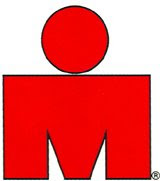Build Muscle and Build Your Metabolism
Everyone knows that weight training or resistance training will help you build muscle. Muscle fuels your metabolism and is your friend. To have a metabolism of a teenager you need to have more muscle and less fat. Lifting weights several times a week will help you build muscle but that is not the only part of the equation. Your muscles need more than resistance training to grow. When you lift weights you tear down your muscles. The process of repairing them will lead to growth. There are some important things to do for proper muscle repair and growth. All of these things play a crucial role in the entire process.
Factors Affecting Muscle Growth
· Protein intake – The RDA for the average person is pretty low in this area. The suggestions for people who workout can also be confusing because it is a pretty broad range. For the average person who exercises an easy rule of thumb is 1 gram of protein per pound of bodyweight. This is a general rule and should be modified depending on the individual. For someone very obese you may want to use their goal weight as the number rather than current weight. For someone extremely active you may want to go up to 1.2 or 1.5 grams per pound of bodyweight. The majority of women in particular fall way short of this recommendation.
· Sleep – if you are not getting quality sleep then you may have a hard time building muscle. Sleep is when your body recovers and this includes your muscles. If you are not sleeping 8 hours or your sleep is not quality sleep then this could impact your muscle growth
· Water – Being dehydrated can have a negative impact on your muscle growth. Your muscles need water! Drink plenty of water each day. The recommendations here will vary quite a bit. There can be many factors that will impact your requirements.
o Do you sweat a lot?
o Do you take medications that dehydrate you?
o Do you drink alcohol or drink a lot of caffeine?
o Do you exercise is a hot humid climate?
All of those things above will affect how much water you should drink. I tell people to start with a gallon a day.
· Alcohol – I know everyone loves that drink at night but believe it or not there is research that shows that it does have a negative impact on muscle growth especially if you drink it right after you workout. There is also research that shows that it inhibits your bodies ability to use fat for energy. So drink alcohol and you may have a hard time building muscle and losing fat!
· Medication - primarily NSAIDS – there is some evidence that NSAIDS inhibit muscle growth.
· Cortisol – This is a hormone that we need in small amounts. If your cortisol levels are too high it can cause muscle breakdown.
· Too intense cardio – If you always feel the need to push your cardio to the limit you may be causing muscle breakdown. It is a good idea to train smart with a heart rate monitor and know your training zones. This is not to say that interval work is not good because it is good when mixed with a combination of lower intensity cardio.
· Stress – stress can cause a lot of bad things in your body. It can lead to increased cortisol levels which I explained above what high cortisol levels will do.
· Testosterone and other hormone levels will factor into the process of building muscle. Both women and men have testosterone and both can have levels that may be too low. It is rare that women need to take testosterone but sometimes it may be necessary. As men get older their levels may be low. The only way to know is to see your doctor and get tested.
· Women in general have a harder time building muscle and women over 40 have a more difficult time building muscle.
· To see results in the gym you should strength train no less than 2 days a week. Ideally 3 to 4 days a week is best.
What can you do to ensure you have it all covered?
· Do at least 2-5 days a week of strength training
· Get adequate amounts of protein
· Avoid alcohol and caffeine – especially alcohol after workouts
· Drink plenty of water
· Get adequate sleep and good quality of sleep
· Keep stress levels low
· Wear heart rate monitor when doing cardio
· Avoid NSAIDS if possible
· Get hormone levels checked


Comments
Post a Comment